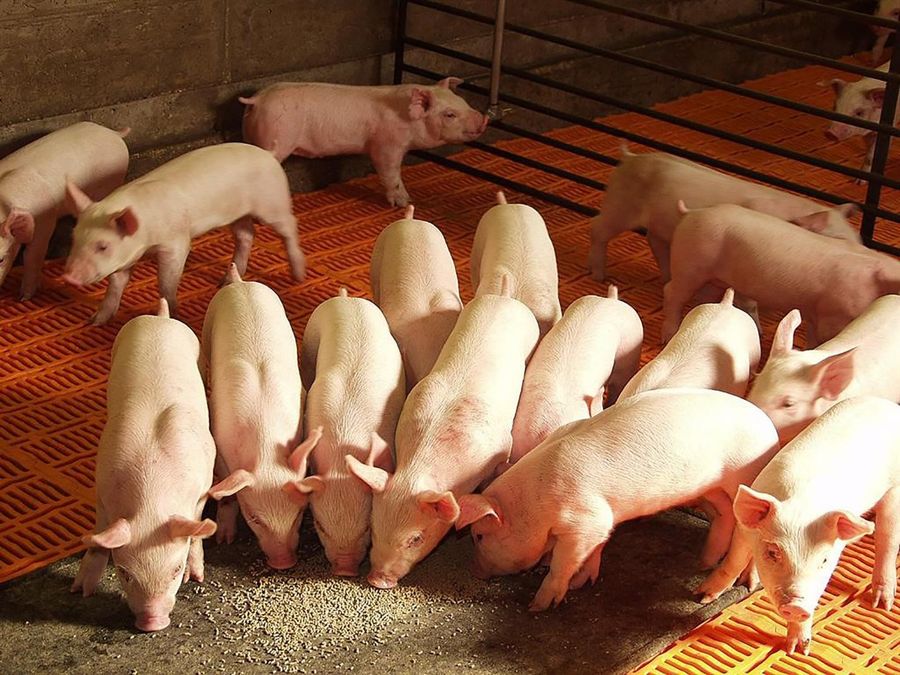Philippines: exploring benefits of mango extract for pig health

Mango seed extract is effective in controlling and reducing nematodes in pigs, exposing its potential as a natural alternative to common anthelmintics.
This is what researchers from the University of Southern Mindanao, the Philippines, found out.
In the Philippines, the problem of endoparasites in pigs is common. This parasitic infection is of economic importance as it affects feed intake and reduces pig growth due to poor feed utilisation. If not controlled, heavy infection leads to high mortality.
The main mode of control or treatment remains the routine use of different anthelmintic products. However, the repeated and improper use of these anthelmintics particularly by smallholder farmers often results in some degree of anthelmintic resistance. As alternatives, plant extracts have the potential as natural anthelmintics.
Mango (Mangifera indica) seed is usually thrown away as a waste product after consuming the fruit. Studies show that mango seed extract contains polyphenolic compounds, among which tannins and vanillin are in the highest amounts. Other compounds in the seed kernel include flavonoids, gallic acid, coumarin, caffeic acid, mangiferin, ferulic acid, and cinnamic acid. These properties draw the attention of the researchers to evaluate the potential of the extract as an anthelmintic against nematodes in pigs.
The study evaluated the efficacy of mango seed extract in reducing the egg per gram counts of common gastrointestinal nematodes in pigs and compared the efficacy to the commonly used anthelmintic drug ‘levamisole’. Naturally infected pigs served as experimental animals and were given a single dose of the mango seed extract at concentrations of either 600, 700, or 800 mg per kg bodyweight.
Researchers observed that the efficacy increased with increased concentration of the mango seed extract, implying a dose-dependent response. The maximum efficacy for the 600 mg dosage was 75.4%, for the 700 mg dosage the maximum efficacy was 84.9%, and for the 800 mg dosage, it was 88.6% within 14 days post-treatment. The efficacy of the 800 mg mango extract was similar to the efficacy of the levamisole group, highlighting the potential of the extract to elicit similar anthelmintic activity to that of the commercial anthelmintic.
The researchers concluded, “The results of our study show that the mango seed extract has potential in vivo anthelmintic activity against gastrointestinal nematodes in pigs. Administering 800 mg of the extract per kg bodyweight can elicit a similar efficacy to that of the commercial anthelmintic levamisole within 14 days post-treatment. This suggests that the anthelmintic activity of the mango seed extract is enough to warrant the potential as a naturally sourced anthelmintic.”
Harnessing the potential of mangoes in improving pig health will go a long way in supporting the country’s pig repopulation programme, amid ASF challenges. In Asia, mangoes are an economically important crop mainly in the Philippines and Australia. As reported by the Philippines Department of Agriculture (DA), around 860,000 tonnes of mangoes per year are produced from 187,000 hectares, with 73% of farms operated by 2.5 million smallholder farmers.
Spearheaded by the Australian Centre for International Agricultural Research (ACIAR), the Philippines collaborates with the Australian government to improve the mango fruit quality through the training of farmers in the development and application of integrated crop management practices. One example, is the project led by Dr Ian Newton, ‘Research and development of integrated crop management for mango production in the southern Philippines and Australia’, which collaborated with four universities and 2 agricultural organisations in the Philippines, also having strong links to two other ACIAR projects focusing on mango post-harvest processes and value chains.
In a report, Dr Ana Notarte, Provincial Agriculturist of Davao Del Norte said, “We are demonstrating to small-scale growers how best-bet practices could improve production and income – so that they can take care of their trees themselves and reap the benefits.”
On the other hand, to promote exports, in 2016, the Philippines and Australia signed an amended version of the Australia-Philippines Specific Commodity Understanding (SCU) that expanded the export market for Philippine mangoes.
Read also
Wheat in Southern Brazil Impacted by Dry Weather and Frosts
Oilseed Industry. Leaders and Strategies in the Times of a Great Change
Black Sea & Danube Region: Oilseed and Vegoil Markets Within Ongoing Transfor...
Serbia. The drought will cause extremely high losses for farmers this year
2023/24 Safrinha Corn in Brazil 91% Harvested
Write to us
Our manager will contact you soon



